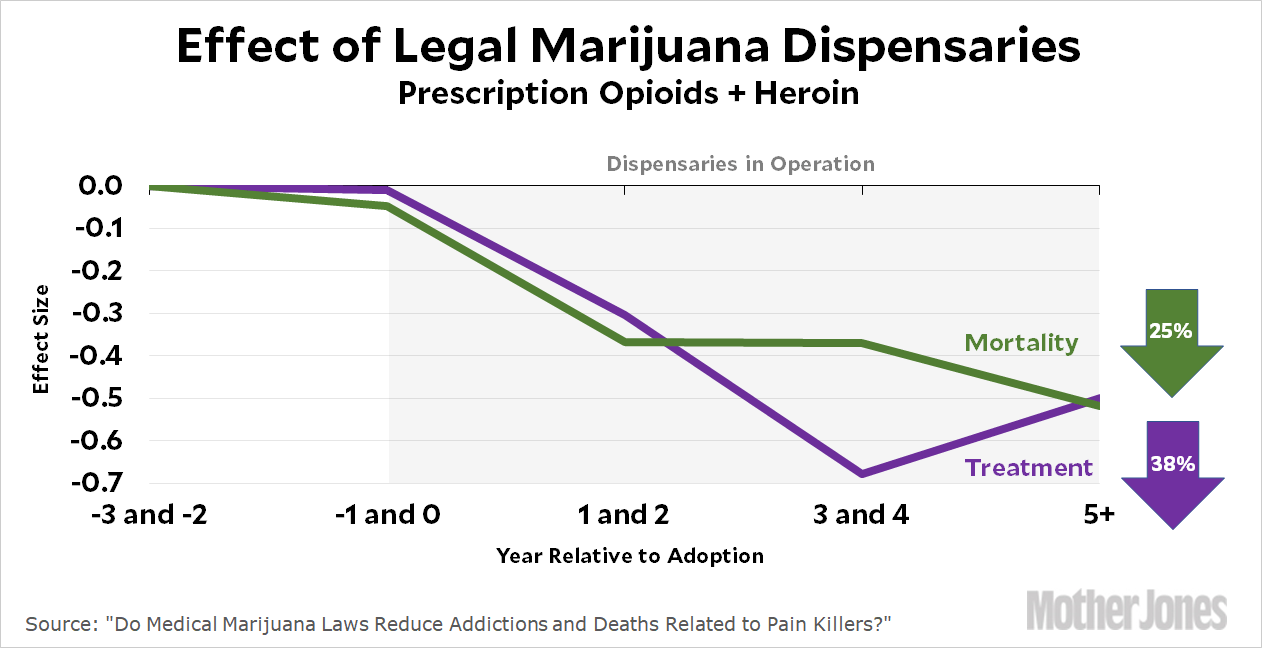Does access to legal marijuana reduce opioid abuse? It’s a tricky question to answer, but Mark Kleiman points today to a recent Rand report that tests the effect of medical marijuana laws between 1999-2013 on both opioid deaths and treatment for opioid addiction.
The study finds that medical marijuana laws appear to have almost no effect on opioid use. What’s important, it turns out, is the existence of legally-protected dispensaries. Once those are in operation, the authors estimate that within a few years admission to addiction treatment programs declines 38 percent and opioid deaths decline 25 percent:

It’s worth noting a couple of things. First, these numbers tend to vary a fair amount depending on precisely which years are included in the study and which controls are used. Second, the total distribution of legal opioid painkillers doesn’t decline after legal marijuana dispensaries become active. Taken together, this means that (a) the findings aren’t especially robust, (b) the paper is unable to say why opioid abuse seems to decline after legal dispensaries are opened, and (c) the sample sizes are fairly modest—something that’s inevitable since we’re still in the early days of legal pot dispensaries.
Those are all good reasons not to treat these results as gospel. FWIW, I’d add another: the results seem too large. It makes sense that opioid abuse might decline when a different kind of pain therapy becomes widely available, but it’s a little hard to believe that the effect would be this large within just a few years. For more reasons to be cautious about these results, Kleiman has you covered in his post. However, we both agree that if we had to bet, we’d now bet that legalizing marijuana probably helps to cut down on opioid abuse. The effect might not be as large as this study suggests, but it’s probably greater than zero.



















